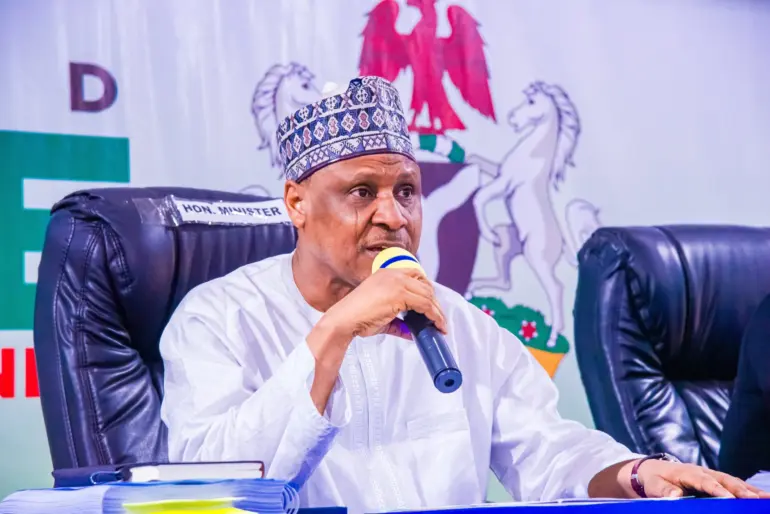The Federal Government has again rejected allegations by US Senator Ted Cruz, who accused Nigerian authorities of enabling genocide against Christians and permitting the destruction of thousands of churches.
Responding on Wednesday, Minister of Information and National Orientation, Mohammed Idris, described the claims as “false, misleading, and unsupported by credible evidence.”
“It’s absurd to claim that over 52,000 Christians have been killed or that 20,000 churches were destroyed. Where did he get those numbers from?” Idris asked in a statement. “No Nigerian official is complicit in targeting any religion.”
Cruz made the comments in an interview with Fox News Digital, where he announced the Nigeria Religious Freedom Accountability Act — a bill introduced in the US Senate to sanction Nigerian officials allegedly complicit in religious persecution.
Cruz also claimed that the killings were “the result of decisions made by specific people” and said the US “knows who they are” and “will hold them accountable.”
In response, Idris reaffirmed Nigeria’s commitment to religious freedom, noting that both Christians and Muslims have suffered from extremist violence. He stressed that Nigeria remains a multi-faith nation committed to protecting the rights of all citizens.
Christian persecution is real, but solution lies in justice, not denial – CAN
Meanwhile, the Christian Association of Nigeria (CAN), in a statement by its President, Archbishop Daniel Okoh, acknowledged the reality of Christian persecution, especially in northern Nigeria.
“Many Christian communities have suffered deadly attacks and the destruction of places of worship,” CAN stated. “But healing won’t come through denial or blame — only through courage to face the truth, grieve together, and rebuild trust.”
CAN said it has long documented religiously motivated attacks, engaged international partners, and petitioned institutions like the International Criminal Court. However, it expressed frustration that many calls for justice have been met with “delay or denial.”
The body urged government and security agencies to take “urgent, transparent, and equitable action to protect vulnerable communities and prosecute perpetrators.”
“We commend government efforts so far but urge a redoubling of commitment toward fairness and swift justice. Peace is too fragile to be taken for granted,” CAN added.
House of Reps condemns US bill, defends Nigeria’s religious record
Also on Wednesday, the House of Representatives backed the Federal Government’s stance, condemning the US Senate bill and rejecting Nigeria’s designation as a “Country of Particular Concern” (CPC) — a move that could trigger sanctions under the Global Magnitsky Act.
The Nigeria Religious Freedom Accountability Act of 2025 (S.2747), introduced in the US Senate on September 9, seeks to compel the US Secretary of State to designate Nigeria as a CPC and sanction officials allegedly linked to religious persecution.
Deputy Speaker Benjamin Kalu, presenting a motion of urgent national importance, argued that Nigeria’s Constitution guarantees religious freedom and prohibits any state religion.
“The insecurity in Nigeria is complex and multi-causal — driven by insurgency, banditry, separatist violence, and communal conflict — affecting all faiths,” Kalu said, citing US State Department reports that attribute most fatalities to non-state actors.
Lawmakers warned that “external legislative actions based on incomplete or decontextualised data risk misrepresenting facts, harming bilateral relations, and emboldening extremists.”
Majority Leader Julius Ihonvbere called the move part of a campaign to “demarket Nigeria,” while lawmaker Sada Soli urged a firm diplomatic response. Edo’s Billy Osawaru stressed the need to strengthen Nigeria’s global image, noting the country still lacks an ambassador to the US.
The House mandated its Committees on Foreign Affairs, Security, Human Rights, and others to coordinate a diplomatic response within 21 days. This includes a formal demarche to the US Senate sponsors, engagement with the US Mission and relevant lawmakers, and a proposed Nigeria–US fact-finding dialogue.
Additionally, the House called for the establishment of a national mechanism on religious freedom involving faith leaders and independent experts and invited the US Commission on International Religious Freedom (USCIRF) for a briefing on sources, methods, and findings.
The resolutions will be transmitted to the Presidency, Ministry of Foreign Affairs, US Congress, USCIRF, African Union, and ECOWAS Commissions.


